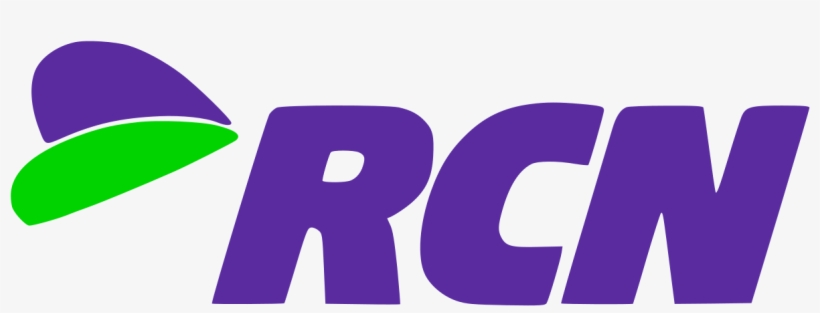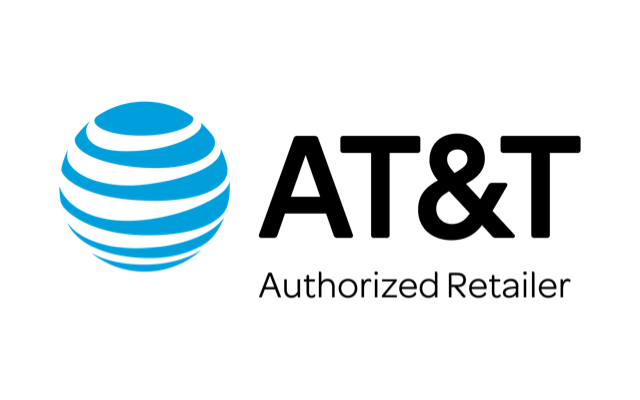Best internet service providers
There are a lot of great internet options out there, from both large scale and local internet companies. These are our picks of the best major ISPs.
If you want to love your ISP’s customer service and reliability, Verizon Fios is the way to go. But for a cheap starting package, RCN’s $19.99 per month broadband internet plan is the best option. Or to pay less for a fast plan, AT&T will make every dollar count.
When you want to avoid a contract, Optimum is the best option. However, if money is no object and internet speed is the one thing that matters to you, Xfinity’s plan with 2,000 Mbps download rate is the fastest one available for a home internet connection.
But those aren’t the only reasons these ISPs are the ones we recommend. Read on to learn more about the pros and cons of each.
| Provider | Price | Download speeds | Data caps | Plan |
|---|---|---|---|---|
| Verizon Fios | $39.99–$79.99/mo.* | 200–up to 940 Mbps | Unlimited | |
| RCN | $19.99–$59.99/mo. | 10–940 Mbps | Unlimited | |
| AT&T | $35.00–$60.00/mo. | 100–940 Mbps/td> | Unlimited | |
| Optimum | $40.00–$65.00/mo. | 300–1,000 Mbps | Unlimited | |
| Xfinity | $19.99–$299.95/mo. | 25–2,000 Mbps | 1,229 GB–unlimited |
Verizon Fios
Best overall
| Pros | Cons |
|---|---|
| High customer satisfaction | Pricey DSL plans |
| Matched upload and download speeds in most cases |
For two years in a row, Verizon Fios was customers’ far and away favorite internet service provider in our customer satisfaction survey. Its high score took into account its stellar customer service, its well-priced internet plans, and the reliability of its 100% fiber network.
As much as we like Verizon’s high speeds, there’s no reason to pay for more internet than you need. Internet 300/300 is an excellent fit for most homes, and it’s super affordable.
Also, video calls will look fabulous for you and the people watching you, thanks to these high upload speeds. Go ahead and treat yourself to an animated Zoom background—these speeds can handle it.
A word of caution: We’re talking about Verizon Fios, which is fiber internet, not Verizon High-Speed Internet, which is DSL internet. The latter reaches speeds only as high as 15 Mbps, but it will run you $69.99 per month. That’s not a fair shake.
RCN
Best for cheap
| Pros | Cons |
|---|---|
| Cheapest broadband plan | Limited availability |
| No contract |
RCN is one of the fastest and cheapest internet providers out there.
Even though RCN provides cable internet to millions of users, RCN still gives off that friendly local internet vibe. It’s community-focused and affordable, with internet service plans based on where you live—so you don’t pay more to cover RCN’s expenses in some other city.
This plan is available only in Chicago, Philadelphia, and Washington DC, but it’s one of the best starting packages out there. It’s ideal if you use the internet only occasionally and want a price tag that reflects that.
The cherries on top are RCN’s no-contract policy and super cheap equipment add-ons. You can rent both a modem and Wi-Fi router for only $2 per month. It’s rare to find Wi-Fi you can pay for by digging through your couch cushions.
We just hope you live in one of the six cities where RCN provides service. If not, you’ll probably want to enter your zip code below to see your internet options.
AT&T Fiber
Cheapest for gig internet
| Pros | Cons |
|---|---|
| Best bang for your buck | Fast internet speeds in only limited areas |
| No annual contract |
AT&T’s Internet 1000 plan is one of the cheapest gig plans out there. Whether you’re working from home or gaming online, internet speeds like that let you run rampant on the ole information highway.
But watch out for one major roadblock: AT&T’s aging network. Rural areas aren’t outfitted with advanced fiber cables, and with AT&T’s one-price-fits-all mentality, you’ll pay a whopping $49.99 per month for creaky old DSL internet.
That hurts like watching someone drive an ancient sedan off the lot for the same price as a new sports car.
But there’s light at the end of the tunnel. AT&T now offers plans without annual contracts, so you can tuck and roll out of a plan whenever you want without paying extra fees.
Optimum
Best no-contract
| Pros | Cons |
|---|---|
| Price for life | Limited area |
| Up to $500 contract buyout |
Like RCN and AT&T, Optimum doesn’t slap you with a yearly contract when you want to sign up, so you’re free to leave whenever. And Optimum sweetens the pot with more deals for freedom with your cable internet service.
If you’ve ever uttered the phrase “I’ve been with [insert your ISP here] for 10 years, but it still gouges me with higher prices every year,” switch to Optimum. Your price will lock in when you sign up, and as long as you stay with that plan, it won’t change.
And if you’re worried about contract termination fees when you leave your current internet provider, Optimum can help you out. It offers up to $500 to buy out your current contract when you switch to Optimum.
Astoundingly, the zippy Optimum 300 is Optimum’s slowest (and cheapest) plan. You’ll get all the great things we talked about—no contract, the price for life, and a contract buyout—for only $40.00 per month.
The major drawback for Optimum is that, like RCN, it’s available in only a few places in the US. We hope you’re in one of them. Enter your zip code below to find out if Optimum is in your area.
Xfinity
Fastest

The specs
- Pricing: $19.99–$299.95/mo.
- Download speeds: 25–2,000 Mbps
- Data caps: 1,229 GB–Unlimited
| Pros | Cons |
|---|---|
| Wide availability | Expensive gig plans |
| Fast fiber speeds |
It’s pure speculation on our part that Xfinity from Comcast offers a 2,000 Mbps plan just to land on top-five lists like this one—but here we are.
You won’t find 2,000 Mbps plans from any other provider. They’re expensive to run, and most people don’t need anywhere near that sort of speed.
But if you’ve found that 1,000 Mbps plans aren’t fast enough for you (we’d love to hear why in the comments section), doubling your bandwidth is certainly a solution. It’s just very expensive solution.
While Gigabit Pro is kind of a gimmick, Xfinity is a generally solid provider. Its internet service plans aren’t the cheapest out there, but Xfinity upped many a plan’s speed in the past year.
Even if you already have an Xfinity plan, this is an excellent time to check in and see if you can get a faster internet connection for a similar price. This writer did—I snagged 100 Mbps for about the same price as my old 75 Mbps. Gotta go fast.
What to look for in top internet service providers
Some internet services have exciting deals and freebies that look super impressive. But when you want the best home internet, make sure the price per month, download speed, and data caps meet your standards before you sign a contract.
Price per month
Since there’s no standard for internet pricing, even 25 Mbps plans can run anywhere from $19.99 to $60 per month. (It’s a big range, we know. Price depends a lot on your provider and location.)
We recommend trying to find a deal around $50 per month.
If that sounds like way too much for a significant utility, we hear you. Read “Free and Low-Income Internet Plans for Families, Seniors, and Students” to learn how to save money on your internet service.
Download speed
The Federal Communications Commission (FCC) defines broadband—high-speed internet—as 25 Mbps download speeds and 3 Mbps upload speeds. Unless you’re in a rural area, it’s easy to find internet speeds like that nowadays.
But our internet usage is growing all the time. People stream more, game more, and telecommute more. Add to that cool smart home devices, and our bandwidth usage is higher than ever.
With that in mind, we recommend trying for faster internet speeds. Going from 25 Mbps to 50 Mbps will make a world of difference, but jumping up to 100 Mbps is the best fit for most homes.
Unless you’re a super internet user, you probably don’t need 1,000 Mbps, but if you feel like your internet connection is too slow, go ahead and kick it up a notch.
Data caps
Data caps—also called data allowances—are limits on how much an ISP will let you use the internet before it charges you extra fees.
Every time you upload or download something, whether it’s clicking a link, sending a Facebook message, or streaming a show from Netflix, you’re using data.
We didn’t talk about data caps much in this article because our top five recommendations all meet our standards. That means they’re all around 1,024 GB (1 TB), which is more than plenty for the average household.
But knowing your provider’s data caps and how much it will charge you can save you a lot of heartbreak. We broke down all the limits and fees in this data cap article, so you don’t have to dig through internet contracts to find your info.
Our final take on the best internet options
There are some excellent internet providers out there with stellar deals and fast internet speeds. But providers vary by area, so you’ll need to figure out your options before setting your heart on one.
Enter your zip code below for a list of internet providers in your area. We don’t keep your data or send it to anyone else, so you’re safe to search with us.
Best internet providers FAQ
What company has the best internet service?
Verizon Fios offers the best home internet in the US. It has fast download and upload speeds, low latency, and unlimited data.
What is the fastest internet speed?
Xfinity from Comcast is the fastest internet provider in the USA thanks to its 2,000 Mbps home internet plan—Gigabit Pro. This ridiculously expensive plan will run you $299.95 per month, and it’s not available in all areas.
But if you live in a big city, and you’ve got the cash, you could practically break the sound barrier with these download speeds. Still, 100 Mbps internet plans are fast enough for most of us, and they’re a lot more affordable.
What is the best rural internet?
Xfinity and CenturyLink offer support for many rural areas, but if you’re deep in the wilderness, satellite internet from Viasat or HughesNet might be your only options for internet access. Check out our article “Best Rural Internet Providers” to make the best choice for yo
What’s the worst internet provider?
Our most recent internet customer satisfaction survey, which asked customers from 10 major internet providers to rate their internet experience, placed Mediacom in last place.
As for this writer, the worst internet provider I’ve reviewed is Windstream. If you’re in an area where it offers affordable internet, it’s not so bad, but it’s shockingly overpriced in many areas.
Windstream also uses outdated DSL tech, but thanks to it’s unlimited data and low-priced modem, it still pulls through for some folks. Just be careful when choosing Windstream—or any internet provider for that matter.



